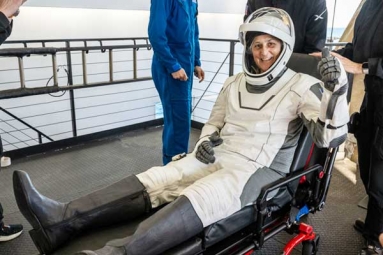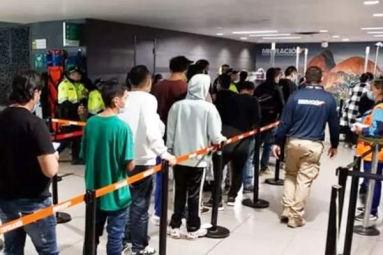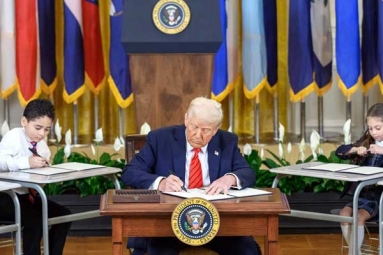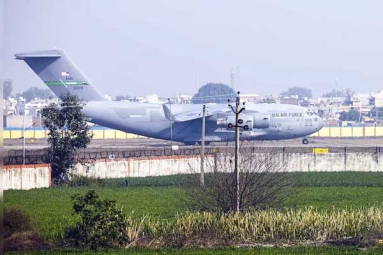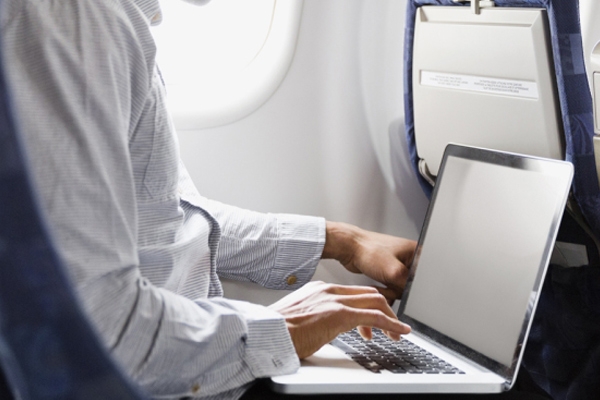
The United States and the United Kingdom have banned large electronic gadgets from the passenger cabins on flights from the Middle East and North African countries.
The United States said that the extremists are seeking innovative ways to create terror in flights with tiny explosive devices hidden in the passenger’s electronic gadgets that are bigger than smart phones.
The US officials have ordered nine airlines from ten countries to announce travelers to pack their laptops, tablets and portable game consoles in their hold luggage.
The nine airlines affected by the US ban are Royal Jordanian, Egypt Air, Turkish Airlines, Saudi Arabian Airlines, Kuwait Airways, Royal Air Maroc, Qatar Airways, Emirates and Etihad Airways.
The 10 airports affected are:
1.Mohammed V International, Casablanca, Morocco
2.Ataturk Airport, Istanbul, Turkey
3.Cairo International Airport, Egypt
4.Queen Alia International, Amman, Jordan
5.King Abdulaziz International, Jeddah, Saudi Arabia
6.King Khalid International, Riyadh, Saudi Arabia
7.Kuwait International Airport
8.Hamad International, Doha, Qatar
9.Abu Dhabi International, United Arab Emirates
10.Dubai International, United Arab Emirates
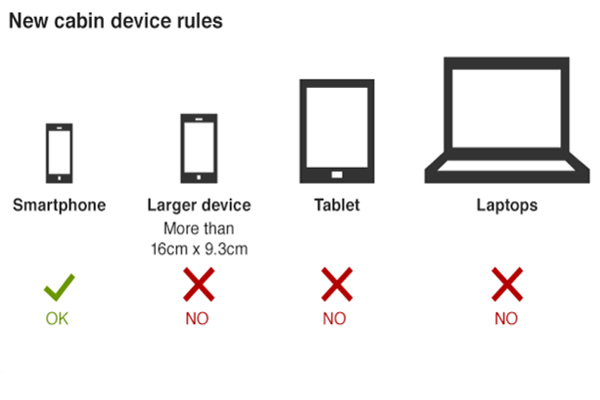 “UK airlines operating direct flights which will be hit by the new measures are British Airways, easyJet, Jet2.com, Monarch, Thomas Cook and Thomson.
“UK airlines operating direct flights which will be hit by the new measures are British Airways, easyJet, Jet2.com, Monarch, Thomas Cook and Thomson.
Passengers from the six countries to the UK affected by the ban:
1.Turkey
2.Lebanon
3.Jordan
4.Egypt
5.Tunisia
6.Saudi Arabia.
The airlines are given a deadline of 7:00 GMT on Saturday (March 25th) to impose the ban indefinitely.
However, a spokesperson for Emirates said that the airline understood that the United States directive would come into effect on March 25th and will remain valid until 14th October this year.
The United States Department of Homeland Security (DHS) in a statement cited attacks on planes and airports over the past two years.
Explosive devices had been hidden in items such as a soda can, in the downing of a Russian airliner over Egypt in October 2015 in which 224 passengers lost their lives, and the laptop used on Somali flight, which went unsuccessful last year.
"Terrorists have historically tried to hide explosives in shoes in 2001, use liquid explosives in 2006, and conceal explosives in printers in 2010 and suicide devices in underwear in 2009 and 2012," it noted.
A spokesperson for the British Government said that the additional security measures may cause disruption for passengers, and we understand, but our top priority will always remain to maintain the safety of British nationals.
The extra security measure comes just weeks after the UK revealed that its security services have foiled 13 potential attacks in less than four years, while counter terrorism agencies are running over 500 investigations at any time.
AMandeep



